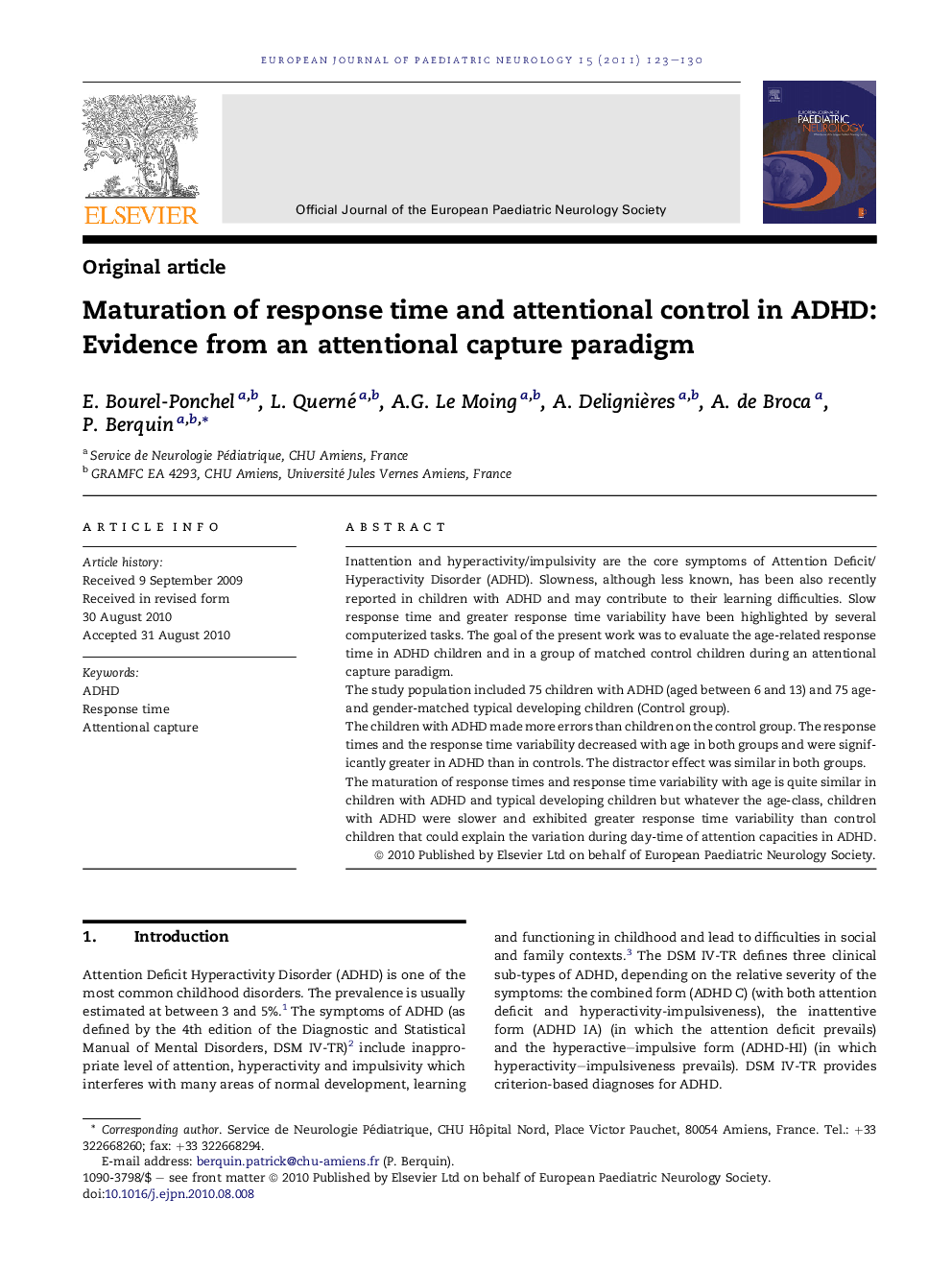| Article ID | Journal | Published Year | Pages | File Type |
|---|---|---|---|---|
| 3054238 | European Journal of Paediatric Neurology | 2011 | 8 Pages |
Inattention and hyperactivity/impulsivity are the core symptoms of Attention Deficit/Hyperactivity Disorder (ADHD). Slowness, although less known, has been also recently reported in children with ADHD and may contribute to their learning difficulties. Slow response time and greater response time variability have been highlighted by several computerized tasks. The goal of the present work was to evaluate the age-related response time in ADHD children and in a group of matched control children during an attentional capture paradigm.The study population included 75 children with ADHD (aged between 6 and 13) and 75 age- and gender-matched typical developing children (Control group).The children with ADHD made more errors than children on the control group. The response times and the response time variability decreased with age in both groups and were significantly greater in ADHD than in controls. The distractor effect was similar in both groups.The maturation of response times and response time variability with age is quite similar in children with ADHD and typical developing children but whatever the age-class, children with ADHD were slower and exhibited greater response time variability than control children that could explain the variation during day-time of attention capacities in ADHD.
